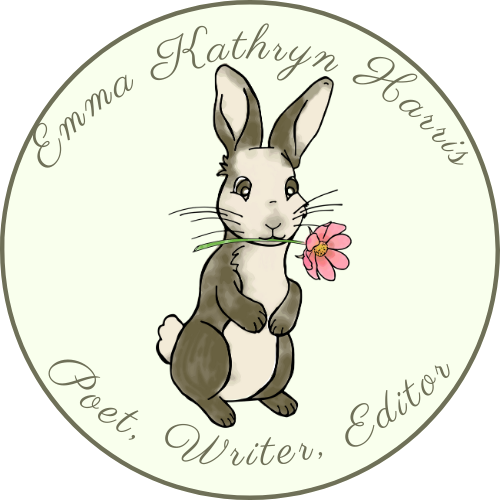Be yourself; everyone else is already taken.”
Oscar Wilde
I remember in elementary school I often submitted my work to our school “newsletter.” The newsletter was really a thick book, put out every year, with select submissions from each grade, kindergarten through sixth. The class voted on their favorites. My poetry made it in almost every year.
In my composition classes, writing, for me, was my favorite homework and I put my all into the assignment (not so much for math and science). I’d write poetry and short stories, and one year I wrote a mystery series similar to the Sam Spade kind of stories, although I had never read Dashiell Hammett. “The Case Files of David Brown,” was my signature series. I no longer have the drafts, but I remember my mother’s favorite line when someone asked David if he wanted coffee. “Yes, make it black, with cream and sugar.” Not bad for an 11-year-old writer who did not drink coffee.
I was graded on grammar, spelling and creativity. I did well and tried to improve with each assignment. I knew from an early age that I wanted to be an author.
As I grew older, my poetry submissions dwindled. I was now facing more rejection, more opinions and yes, more feedback that likely I took personally. My short stories were equally scoffed at and later my novels’ manuscripts were rejected.
Writing was starting to look like work.
Add to that my newfound fear that I was not good enough to have it out in the public eye.

Why a writer’s enemy is fear
I have never had—nor do I to this day have—a fear of public speaking. I started young getting up in front of an audience either in plays and amateur talent shows, to today’s workshops and trainings. I’ve performed piano and voice live, which, I think, is a bit more fearful for me. But I do well, and I know it is mainly because I’m prepared.
Poetry, however, is a different animal. Reading my own poetry in front of people makes me nervous because poetry is personal. I am not pretending. I have to be me.
Poetry is a gateway to the soul, and I open myself up to be vulnerable.
Even when writing novels, stories, personal essays and memoirs, we are opening our vulnerability. We are handing something—our baby—to someone and asking them to judge us and treat our baby with the same care and thoughtfulness we have given it.
Then they don’t. They hand it back, sometimes with contempt.
As the rejections pile up, and the negativity overwhelms, we begin to doubt our abilities. Are others seeing the garbage we are writing that we think is as fragrant as a flower garden?
When we share our hard work and labor with the very ones who can help us realize a life of a published author, we are giving them permission to judge us. We desire to build trust. To be liked. And the audience, sadly, isn’t always kind.
And if we are not careful, we will let fear take over and dictate our next project, if we decide to do anything at all. Sometimes it is easier to find another hobby. Because, at that point, we tell ourselves our writing is a hobby and we’re just not that good at it.
Fear becomes as strong as we make it.
Fear becomes as strong as we make it.

Fighting our own fears
When we are young, we usually do not have much fear within us. It takes time to develop fear either by how we are trained or what we learn from personal experience.
While my public speaking has not been abused, my writing has. And I recognize that as I got older and the teasing and taunts increased, it was harder to enjoy my writing. I never stopped, although poetry took a back seat for many years, but I continued writing in some form even if it was business.
If we do not try and put ourselves and our work out there, we will never know if what we are attempting to accomplish will work. We cannot wait until our writing is “perfect,” because we will never submit it, and we will always wonder what could have been and never was.
There are a lot of good writers in the world, but they are not perfect, and they are not as amazing as others try to make them sound. They are good, but not great. What sets them apart from other writers is that they try.
“Any writing exposes writers to judgment about the quality of their work and their thought. The closer they get to painful personal truths, the more fear mounts—not just about what they might reveal but about what they might discover should they venture too deeply inside. To write well, however, that’s exactly where we must venture.”
Ralph Keyes, “The Courage to write: how writers transcend fear”
“Any writing exposes writers to judgment about the quality of their work and their thought. The closer they get to painful personal truths, the more fear mounts—not just about what they might reveal but about what they might discover should they venture too deeply inside. To write well, however, that’s exactly where we must venture.” — Ralph Keyes, “The Courage to Write: How Writers Transcend Fear.”
Therefore, keep experimenting. Learn what works and what needs adjustment. Listen to the feedback that will help you grow, not what will bring you down.
You have heard it said that writing is subjective. What one editor does not like another editor will. This applies whether you submit your manuscript, your nonfiction outline, or an article pitch to a well-respected newspaper. What one rejects another will snap up.
Rejection—whether with a solid “no” or ghosting—is draining. I have submitted multiple poems, essays, and article outlines that are rejected. But I keep going because at some point someone will want my hard work and love it as much as I do.
And I think that focus is what keeps me—and should keep you—going. Knowing that you have put in a lot of time and effort into your work, you’ve polished and edited it, and you’re proud of it. And that it deserves to be published. Your success and your joy lie in your hard work.
Focus on what you can do, not the outcome.
Only then do you show fear who is in control.



